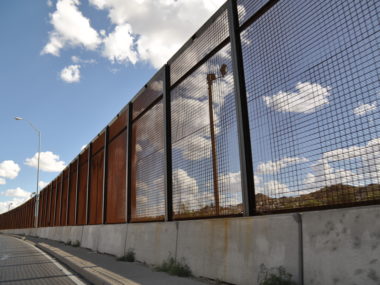
- Our very own contributor Dan Byman has an op-ed in the Sunday New York Times arguing that Obama shouldn’t draw red lines. His article assumes that Obama meant to draw the red line at chemical weapons use, which seems dubious now that…
- The selfsame edition of the Times has printed a front-page piece suggesting that Obama didn’t really mean to draw a red line at the use of chemical weapons. Instead, mentioning the red line was “unscripted” and “off the cuff.” I can sort of see how this could happen. At this point, the international illegality of the use of chemical weapons (especially against civilians) is fairly noncontroversial. Violation of a norm that the rest of the world has taken for granted since World War I would easily put Syria back into the “rogue state” category. My guess is that someone asked the president “What is the US’ red line on Syria?,” he simply retrieved the easiest “off the cuff” red line that sprung to mind, and choosing chemical weapons use because (a) everyone knows it’s abhorrent; and (b) he thought that Assad would never do it; so (c) the US would never be called to action. Others take issue with this standard, but the rest of the administration has since viewed it as a safe bet and has returned to this red line routinely. This may be complicated by the fact that…
- A UN investigator reports that it may be rebel groups, rather than the Assad government, who have used chemical weapons. It’s important to emphasize that this report is based on somewhat inconclusive evidence. [Update: The Syrian rebels have vehemently denied this claim.] But if true, it highlights a moral hazard problem — the fact that opposition groups may deliberately provoke or even cross the red line in order to generate an international intervention that (they think) would tip the balance in the favor.
- On the other hand, Israel has no problem drawing red lines. Benjamin Netanyahu notoriously drew a red line when it came to Iranian nuclear proliferation, and in recent days, Israel has launched several “defensive air strikes” against unnamed targets assumed to be sites of weapons transfers to Hizballah. The Israeli government has an explicitly low tolerance for Iranian missiles or chemical weapons falling into the hands of its more immediate enemies. But when the Israel Embassy’s spokesman was asked about the recent air strikes, he provided a definitively scripted response: No comment. But the message is clear to Iran: Israel responds with force when Iran shares weapons with Hizballah, and Israel will respond with force if Iran approaches the red line on nukes.
Regardless, it is clear that neither the enforcement nor the non-enforcement of red lines has halted the killing of civilians as the Syrian tragedy unfolds.








0 comments